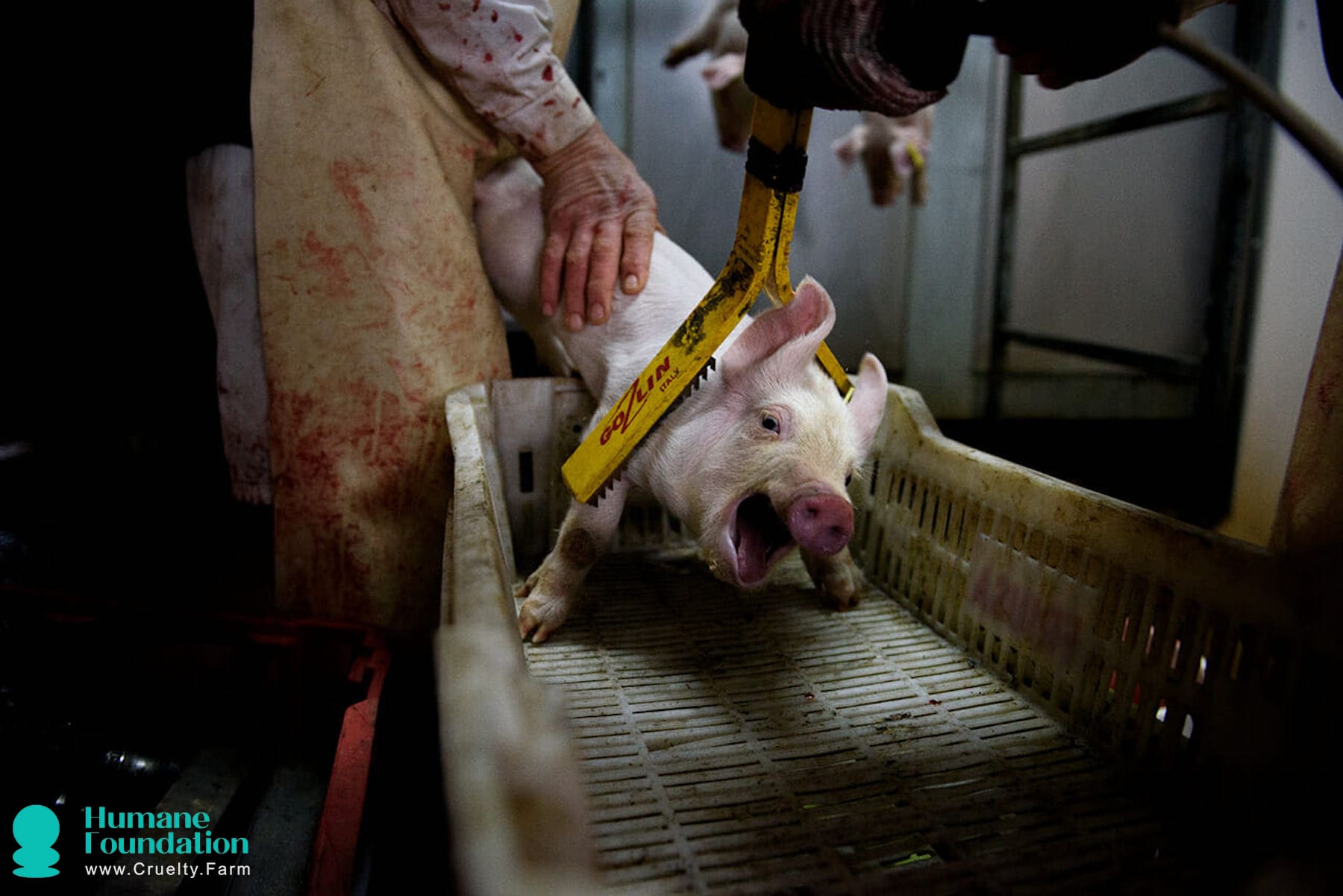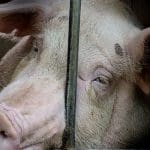Factory farming, often termed intensive animal farming, is a dominant force in modern agriculture, aiming to meet global demand for meat, dairy, and eggs. However, behind the pursuit of efficiency lies a significant economic burden tied to unethical practices. From reputational damage and legal expenses to rising compliance costs and environmental fallout, the financial strain of animal cruelty in factory farms extends far beyond the industry itself—impacting consumers, local communities, and public health. As awareness of these hidden costs grows alongside calls for ethical reform, this article examines how prioritising humane practices can pave the way for both economic resilience and sustainable progress
Factory farming, also known as intensive animal farming, has become a widespread practice in the modern agricultural industry. This method of animal production involves the confinement of a large number of animals in small and confined spaces, with the primary goal of maximizing profits. While the main motivation behind this form of farming is to meet the increasing demand for meat, dairy, and eggs, the methods used often involve severe animal cruelty. Despite the numerous ethical concerns surrounding factory farming, its economic impact has been largely overlooked. The truth is, the hidden costs of animal cruelty in factory farms have a significant impact on our economy. In this article, we will explore the various economic costs associated with factory farming and how they affect not only the animals but also consumers, farmers, and the environment. It is crucial to understand the financial repercussions of this industry in order to make informed decisions about our food choices and advocate for more ethical and sustainable practices.
Economic impact of inhumane practices
The mistreatment of animals in factory farms not only raises ethical concerns, but it also has significant economic implications. Numerous studies have shown that inhumane practices in these facilities can lead to increased costs and decreased profitability for the industry. One of the key factors contributing to this economic impact is the potential for reputational damage. With the growing awareness and concern for animal welfare among consumers, businesses found to be engaging in cruel practices may face public backlash and loss of customer trust. This can result in reduced demand for their products and ultimately lead to financial losses. Additionally, the poor living conditions and mistreatment of animals can increase the risk of disease outbreaks within the facility, requiring costly measures such as quarantine, medication, and even culling of animals. These expenses further strain the financial viability of factory farms. Hence, it is imperative for the industry to address the economic consequences of inhumane practices and adopt more ethical, sustainable approaches to animal welfare.

Loss of profits from lawsuits
The mistreatment of animals in factory farms not only carries ethical consequences but also poses the risk of significant financial losses in the form of lawsuits. When animal cruelty is exposed and legal action is taken against the responsible parties, companies involved in these practices may face substantial financial settlements, fines, and legal fees. These expenses can severely impact their profitability and overall business operations. Moreover, lawsuits related to animal cruelty can also lead to reputational damage and public scrutiny, further exacerbating the financial repercussions for the industry. It is crucial for factory farms to prioritize ethical treatment of animals not only to avoid legal consequences but also to safeguard their long-term financial sustainability.
Increased regulation and compliance costs
The economic costs of animal cruelty in factory farms are further compounded by the increased regulation and compliance costs imposed on the industry. In response to growing concerns about animal welfare, governments around the world are implementing stricter regulations to prevent the mistreatment of animals in agricultural settings. These regulations often require factory farms to invest in improved infrastructure, enhanced animal welfare practices, and increased monitoring and reporting mechanisms. Consequently, the industry faces significant financial burdens as they strive to meet these compliance requirements. The costs associated with implementing and maintaining these regulatory measures can be substantial, impacting the profitability and competitiveness of factory farms. Additionally, the need for ongoing compliance audits and inspections adds to the administrative and operational overhead, further straining the financial resources of the industry. As a result, factory farms are compelled to allocate significant funds towards meeting these regulatory demands, which can ultimately affect the affordability and accessibility of animal-derived products in the market.
Negative impact on brand reputation
In addition to the economic costs, the mistreatment of animals in factory farms can have a severe negative impact on a brand’s reputation. With increased public awareness and concern for animal welfare, consumers are becoming more discerning about the products they purchase and the companies they support. Instances of animal cruelty or unethical treatment in factory farms can quickly spread through social media and news outlets, causing significant backlash and damage to a brand’s image. Consumers are increasingly demanding transparency and accountability from companies, and any association with animal cruelty can lead to a loss of trust and loyalty. This tarnished reputation can have long-lasting consequences, resulting in decreased sales, potential boycotts, and even legal repercussions. Therefore, it is crucial for companies in the agricultural industry to prioritize animal welfare and ethical practices to safeguard their brand reputation and maintain consumer trust.
Loss of consumer trust and loyalty
One of the most significant consequences of animal cruelty in factory farms is the loss of consumer trust and loyalty. Consumers today are more concerned about the ethical treatment of animals and expect companies to uphold humane practices. Any association with animal cruelty can quickly damage a brand’s reputation and lead to a loss of trust among consumers. This loss of trust can have long-lasting effects, including decreased sales and a decline in customer loyalty. In an era of social media and instant information sharing, news of unethical treatment spreads rapidly, amplifying the negative impact on a brand’s image. Companies must recognize the importance of prioritizing animal welfare and ethical practices to maintain consumer trust and loyalty and safeguard their long-term success.
Higher costs for food safety measures
Implementing and maintaining rigorous food safety measures in factory farms can result in higher costs for producers. Ensuring that animals are kept in clean and sanitary conditions, monitoring the health and well-being of the animals, and implementing proper hygiene practices throughout the production process all require additional resources and investments. This includes hiring trained personnel, implementing regular testing and inspections, and investing in equipment and infrastructure to meet stringent food safety regulations. While these measures are necessary to protect public health and prevent foodborne illnesses, they can pose financial challenges for producers. The increased costs of implementing and maintaining food safety measures may be passed on to consumers through higher prices for animal products. However, it is important to recognize that these costs are essential to upholding the highest standards of food safety and ensuring the well-being of both animals and consumers.
Decreased productivity and efficiency
In addition to the financial burdens, animal cruelty in factory farms can also have significant impacts on productivity and efficiency within the industry. Mistreatment and neglect of animals can lead to increased stress and discomfort, which in turn can negatively affect their overall health and productivity. Animal welfare is closely tied to the quality and quantity of animal products that can be obtained from factory farms. Sick or injured animals may not be able to reach their full potential in terms of growth and production, resulting in lower yields. Moreover, the spread of diseases within crowded and unsanitary conditions can further decrease productivity, as resources must be allocated to address and contain outbreaks. All of these factors contribute to decreased efficiency in factory farming operations, impacting the profitability and sustainability of the industry.
Cost of treating sick animals
The cost of treating sick animals in factory farms represents a considerable economic burden for the industry. When animals become ill or injured due to poor living conditions or mistreatment, they require veterinary care and medication to alleviate their suffering and promote their recovery. These expenses can quickly accumulate, especially in large-scale farming operations where thousands of animals may require medical attention. Moreover, the necessary resources and personnel required to administer treatments and provide ongoing care can further drive up costs. Additionally, the lengthened recovery time for sick animals can impact overall productivity and increase operational expenses, as resources must be diverted to accommodate their needs. Thus, the cost of treating sick animals presents a significant financial challenge for factory farms, affecting their profitability and contributing to the overall economic costs of animal cruelty in this industry.
Economic burden on local communities
The economic burden of animal cruelty in factory farms extends beyond the industry itself and has implications for local communities. Firstly, the presence of these facilities can lead to a decline in property values in surrounding areas. The strong odor and potential pollution associated with factory farms can make nearby residential properties less appealing to prospective buyers, resulting in decreased property values and potential financial losses for homeowners. Additionally, the negative environmental impacts of these operations, such as water and air pollution, can harm local ecosystems and natural resources, leading to further economic consequences for the community. The need for increased regulatory oversight and monitoring of factory farms can also strain local government resources, diverting funding and manpower away from other important community needs. Overall, the economic burden on local communities due to animal cruelty in factory farms encompasses factors such as declining property values, environmental degradation, and the strain on local government resources.
Long-term environmental and health consequences
Numerous studies have highlighted the long-term environmental and health consequences associated with the practices in factory farms. From an environmental standpoint, the intensive confinement of animals in these facilities leads to the accumulation of large amounts of waste, often in the form of manure. Improper handling and disposal of this waste can result in the contamination of nearby water sources, contributing to water pollution and the degradation of aquatic ecosystems. Moreover, the release of greenhouse gases such as methane from animal waste contributes to climate change, further exacerbating environmental challenges.
In terms of health consequences, the crowded and unsanitary conditions in factory farms create a breeding ground for the spread of diseases. The excessive use of antibiotics to prevent illness and promote growth in these animals has led to the development of antibiotic-resistant bacteria, posing a significant threat to public health. Additionally, the consumption of products derived from factory-farmed animals, which are often subjected to hormonally-based growth enhancement practices, has raised concerns about the potential impact on human health, including the increased risk of antibiotic resistance and the presence of harmful substances in the food supply.
These long-term environmental and health consequences highlight the need for more sustainable and humane alternatives to the current practices in factory farms. By promoting ethical and eco-friendly farming methods, we can mitigate the economic and societal costs associated with animal cruelty while safeguarding our environment and public health for future generations.
In conclusion, the economic costs of animal cruelty in factory farms go beyond the ethical and moral implications. The financial impacts on the farmers, the economy, and ultimately, the consumer, should not be overlooked. As consumers, we have the power to make more informed and ethical choices about the products we purchase. By supporting sustainable and humane farming practices, we can not only help to reduce the economic costs of animal cruelty, but also create a better and more sustainable world for all beings. It is time to recognize and address the true cost of factory farming and work towards a more ethical and sustainable future.


FAQ
How does animal cruelty in factory farms impact the overall economy?
Animal cruelty in factory farms can have several impacts on the overall economy. Firstly, it can lead to negative publicity and damage to the reputation of the agricultural industry, resulting in reduced consumer trust and decreased demand for products. This can lead to financial losses for farmers and related businesses. Additionally, the high costs associated with managing and addressing animal welfare issues can also impact the profitability of factory farms. Furthermore, animal cruelty can lead to increased government regulations and legal actions, which can further burden the industry and result in economic consequences. Overall, animal cruelty in factory farms can have significant economic ramifications.
What are the financial consequences of animal welfare violations in factory farms?
Animal welfare violations in factory farms can have significant financial consequences. Firstly, there may be legal penalties and fines imposed by regulatory authorities for non-compliance with animal welfare standards. These fines can be substantial and impact the profitability of the farm. Moreover, animal welfare violations can negatively affect brand reputation and consumer trust, leading to decreased demand for products and potential boycotts. This can result in reduced sales and revenue for the farm. Additionally, animal welfare concerns may lead to increased scrutiny from investors, shareholders, and lenders, potentially impacting the farm’s ability to secure financing or investment. Overall, animal welfare violations can have both immediate and long-term financial repercussions for factory farms.
How does animal cruelty affect consumer behavior and purchasing decisions?
Animal cruelty can have a significant impact on consumer behavior and purchasing decisions. Many consumers are becoming more conscious about the ethical treatment of animals and are actively seeking out products that are cruelty-free. They are more likely to avoid brands or businesses that have been associated with animal cruelty or use animal testing. This shift in consumer preferences has led to a rise in demand for vegan, cruelty-free, and ethical products across various industries, including cosmetics, fashion, and food. As a result, companies are now adapting their practices to meet this growing consumer demand and are incorporating cruelty-free and sustainable options into their product offerings.
Are there any hidden costs associated with animal cruelty in factory farms that are often overlooked?
Yes, there are hidden costs associated with animal cruelty in factory farms that are often overlooked. These costs include environmental damage due to pollution from factory farm waste, public health risks associated with the use of antibiotics and hormones in animal agriculture, and the strain on healthcare systems due to outbreaks of zoonotic diseases. Additionally, the psychological toll on workers in these facilities can lead to higher turnover rates and increased healthcare costs. These hidden costs highlight the need for more sustainable and ethical practices in animal agriculture.
What are the potential economic benefits of implementing stricter animal welfare regulations in factory farms?
Implementing stricter animal welfare regulations in factory farms can have several potential economic benefits. Firstly, it can improve the reputation and public image of the farms, leading to increased consumer trust and demand for their products. This can result in higher prices and increased market share. Secondly, better animal welfare conditions can lead to healthier animals, reducing the need for veterinary care and decreasing the risk of disease outbreaks. This can lead to lower production costs and increased efficiency. Additionally, strict regulations can encourage innovation and the development of new technologies that improve animal welfare, creating opportunities for economic growth and job creation in related industries.



